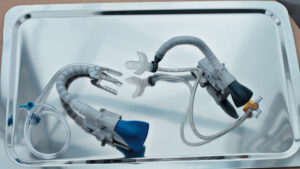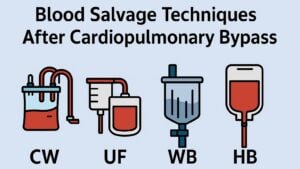Background: We aimed to determine the usability of ranolazine (Rn) as a neuroprotective during cardiac surgeries and carotid artery interventions where cerebral blood flow is interrupted.
Methods: Female Wistar albino rats were used. The rats were divided into 4 groups of 8 rats each. The first group (Group 1) was the control group. Group 2 underwent ischemia induction but was not treated with Rn. Group 3 received 25 mg/kg/day and Group 4 50 mg/kg/day Rn intraperitoneally, starting 3 days before ischemia induction. Bilateral carotid arteries were explored and clamped simultaneously. Ischemia was induced for 15 minutes. After 72 hours, the experimental animals were sacrificed.
Results: Superoxide dismutase, alkaline phosphatase, and interleukin 6 levels were similar among the 4 groups. Acetylcholine esterase (Group 3: p = 0.007, Group 4: p = 0.002), tumor necrosis factor-alpha (Group 4: p = 0.01), and annexin V (Group 3: p = 0.001) levels were statistically significantly lower in the Rn-treated groups. Malondialdehyde (Group 3: p = 0.003, Group 4: p = 0.009), reduced glutathione (Group 4: p = 0.04), acid phosphatase (Group 3: p = 0.04), noradrenaline (Group 3: p = 0.01), and Bcl-2 (Group 4: p = 0.004) levels were significantly higher in the Rn-treated groups.
Conclusions: The results of this study demonstrated the antiapoptotic effect of Rn in a brain ischemia-reperfusion model of rats receiving Rn before the procedure.
Keywords: Carotid occlusion; Cerebral ischemia; Coronary bypass; Heart surgery; Ranolazine.







